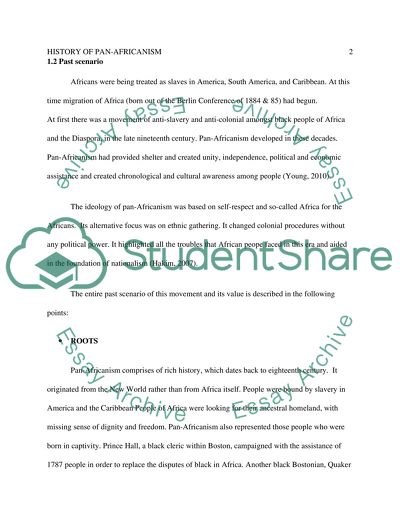Cite this document
(“The History of Pan-Africanism Essay Example | Topics and Well Written Essays - 1000 words”, n.d.)
Retrieved from https://studentshare.org/history/1437001-the-history-of-pan-africanism
Retrieved from https://studentshare.org/history/1437001-the-history-of-pan-africanism
(The History of Pan-Africanism Essay Example | Topics and Well Written Essays - 1000 Words)
https://studentshare.org/history/1437001-the-history-of-pan-africanism.
https://studentshare.org/history/1437001-the-history-of-pan-africanism.
“The History of Pan-Africanism Essay Example | Topics and Well Written Essays - 1000 Words”, n.d. https://studentshare.org/history/1437001-the-history-of-pan-africanism.


